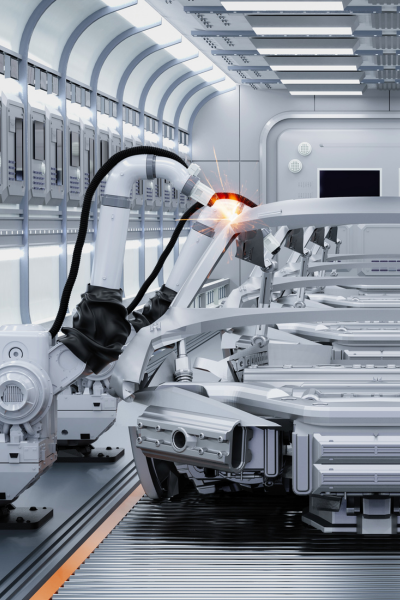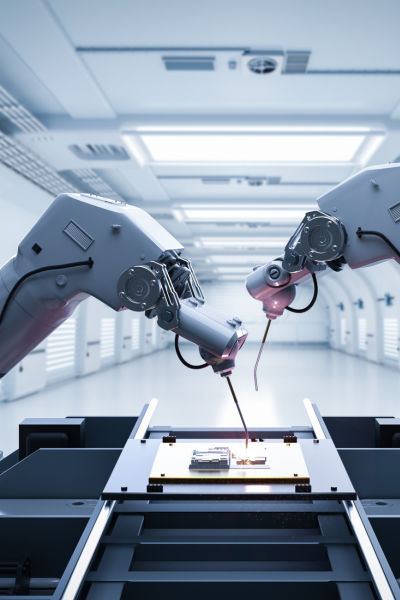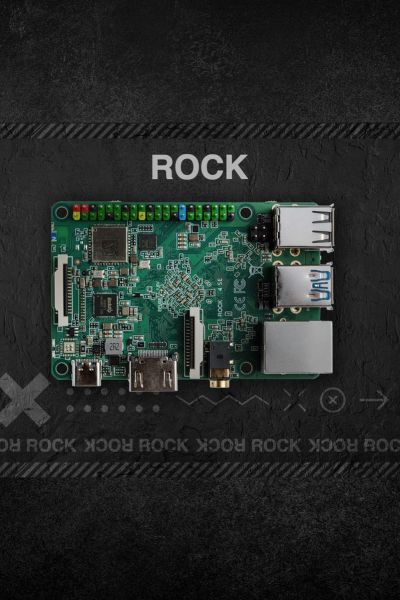
Artificial intelligence (AI) is rapidly transforming the Internet of Things (IoT) space, offering entrepreneurs new ways to improve their products and services, increase efficiency, and reduce costs. In this blog post, Nils Christensson, Vice President of Product & Technology at OKdo, will give his expert take and discuss how AI can deliver ROI for IoT entrepreneurs.
Nils Christensson is the Vice President of Product & Technology at OKdo. With 20+ years’ experience in the industry, he leads a team responsible for the product range at OKdo that focuses on single-board computers (SBCs), IoT and education technology as well as the entire ecosystem of products that surround it.
The best part about being an enabler for innovation is that you bring forward the tools for people’s imagination to flourish. That’s what we strive for at OKdo. I have the pleasure of working with products and alongside customers in the single-board computer (SBC) space, which has continued to have an explosion in terms of the capabilities, the number of players in the market and the use cases for them as the customer base grows.


SBCs started off as an educational tool but are now used throughout the industry, and the continuing pervasive trend of SBCs makes them a key consideration for almost all smart connected devices. I truly believe that these are exciting times and the integration of AI capabilities into systems-on-chips (SOCs) and onto SBCs is just the start of a tectonic shift in the AI market that will maintain the growth in the SBC market for many years to come.


But even with the rapid rate of progress, there are still numerous challenges facing IoT entrepreneurs and organisations. A recent report from Beecham Research found that 74% of companies class their IoT projects as failures. Of course, there could be any number of reasons for this, but there are a few worth citing.
Achieving ROI is an objective that must be met but there are plenty of separate obstacles that form a part of that broader challenge. These include scalability – a 2022 survey by Gartner tells us that, on average, only 54% of AI projects make it from pilot to production – plus staying on budget and generating revenue quickly.


Hardware integration and security issues can have an impact, too. AI can help to unravel this ROI conundrum, but how?
Putting a figure on your AI ROI
For an IoT entrepreneur, the value in AI is in being able to process, gain insight from, and act on the data. If something unique is happening, the knowledge of that happening or that it’s about to happen will save you money. But it’s difficult to quantify savings without getting into a very specific or understood use case and properly understanding the entire lifecycle of that use case.
As an example of IoT ROI, we work very closely with a company called Laiier, whose technology is printed sensors designed to detect water leaks. But they go beyond that in that they take that data from the sensor and, rather than just notify whether there is a leak, provide an insight service about the characteristics of the leak and pass it through the cloud. From just two or three drops of water, the behaviour of the data – in this case, the leak – can trigger different alarms to a user.


So, when you install one of these, you may not see an alert for years – years of zero ROI. But when you do it’s going to pay back tenfold or even a hundredfold – especially when you consider that an undetected leak could result in tens of thousands of dollars’ worth of damage.
For entrepreneurs, quantifying these benefits and when they occur within the product lifecycle will make the task of marketing a new IoT technology much easier.
The benefits for IoT entrepreneurs
What does the SBC as a platform do for our customers? It offers them a building-block solution – either with a focus on AI applications or just as a general-purpose platform or board.
One challenge facing IoT entrepreneurs is their cashflow – and it’s the general availability of SBCs that adds value. A customer can just buy them off the shelf – whenever and how many they need. For bespoke solutions, the full exposure of the supply chain is with you. If you want to buy chipsets to put into manufacturing, you need to send them to your factory or go to a contract manufacturer for them to build the board for you. That creates cash constraints but, from an entrepreneur’s perspective, the SBC provides that value.
Another challenge is the engineering. An entrepreneur has an idea or an IP or a vision and, in the world of IoT and AI, it’s rarely to do with component selection, so there’s a lot of engineering to be done. If they start from scratch, as opposed to with an SBC, they must invest a lot more into the engineering, which takes up time and resource.
With an SBC, they can jump straight into application development. Whether it’s to prove to investors that their idea is solid or go out to prospective customers, this more rapid development offers a big acceleration for them in terms of getting customer insight and understanding the validity of their business case. It also supports the notion of failing fast, trying your idea and evolving to get to a successful product faster and with less investment.
SBCs come with baseline software, too, so there’s no need to start from scratch there, either. That’s a big win for any entrepreneurial organisation: they can get a head start and move faster. These boards also come with baseline certification – sometimes in the global market but
at least across the crucial European (CE) and US markets (FCC). This significantly reduces the risk for issues during the certification of the complete product.
Then there’s scalability. If an AI inventor is losing sleep, worrying that “I have this great thing, I can make a business out of it but I don’t know if I can get enough funding for me to build my own factory and produce it so I’m going to take it step by step”, then that’s where the range of SBCs available to them is a huge benefit. It could allow them to build a product to get into the market, pitch to investors or go to a trade show and gauge interest.
The need for AI acceleration on SBCs
AI accelerators – hardware or systems designed to increase the speed and efficiency of machine learning and AI applications – are sure to be crucial in the continued rate of development in this field.
But early on, the SBCs and chipsets that were used didn’t have any AI acceleration. Instead, customers used USB sticks with an AI accelerator so that the data would be processed more effectively and fed back in.
Now, we’re seeing there’s still a market for that but we’re also seeing a lot more being integrated on the board itself – as with the likes of Google Coral AI accelerator platforms. More and more SOC vendors understand the need for AI acceleration, so they put accelerators on the main processor chip, with Nvidia an example of one of the big players in this space where the AI capabilities outweigh the general-purpose CPU capability.
The bottom line is that today, compared to three years ago, we’re able to offer different kinds of AI support – either from the chipsets themselves and in products like the ROCK 5 or via acceleration through co-processors like the Nicla Voice for Arduino or the Google Coral SBC range. There are now all kinds of options in the portfolio for AI versus a couple of years ago, when it was only a USB stick, and that can only be a good thing for IoT entrepreneurs.
The future for AI and IoT entrepreneurs
The key trend now is that AI is becoming more pervasive in single-board computing. It’s not a question of ‘where can I find it?’; instead, it’s ‘what can I use it for?’. It’s not on every board but I predict that it’s going to go from where it is now, on maybe 30% of the range, to 50% to 70% and beyond.
What is more difficult to foresee is what everybody is going to do with it. With IoT 10 years ago, we were all wondering the same thing and, in the early days of mobile phones, it was all about ‘what will be the killer application?’. First it was text messaging, then the camera and so on but, as the complexity of the mobile device grew, your killer app became different to mine. Everybody uses the device for something different.


IoT is the same. It doesn’t have a killer app because it’s going to grow into so many different things and so many different applications. That’s where single-board computing comes into its own.
You might have 100 or 500 engineers to design a mobile phone because you know that you’re going to sell a lot of them but, if I’m developing an IoT application, how many am I going to actually sell and where’s my market window? I think AI is going to be similar, especially with IoT. It’s going to be so many different things – so there will be plenty of opportunities for entrepreneurial organisations to use the technology and achieve the ROI for which they’re looking.
Helping you achieve your ROI
Quantifying the benefits to you, the IoT entrepreneur, will depend on your project and its use cases but I believe that, here at OKdo, we can offer you the solutions to overcome challenges relating to scalability, efficiency, integration and more.
If you have an idea with which you need support or you just want to know more about the IoT and AI, get in touch with OKdo. We love playing a part in helping you to turn your visions into reality.



Let’s invent the future together
What’s your challenge? From augmented reality to machine learning and automation, send us your questions, problems or ideas… We have the solution to help you design the world.





